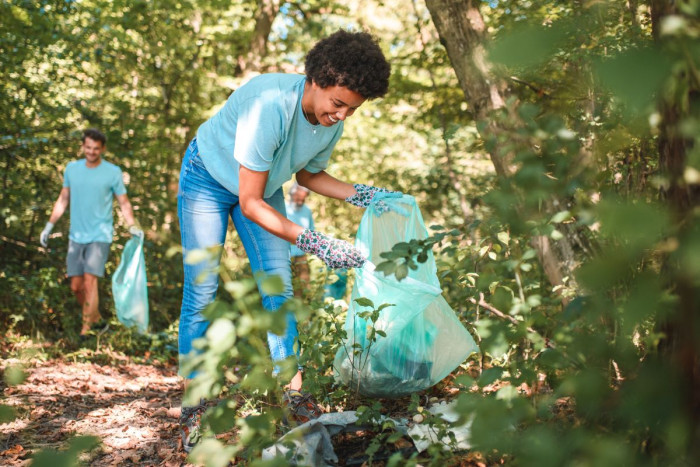Biosecurity Officer
Āpiha Ao Koiora
Alternative titles for this job
Biosecurity officers check areas of land for harmful animals or plants and arrange for, or help with, pest destruction and control.
Pay
Biosecurity officers usually earn
$65K-$80K per year
Biosecurity officers with more responsibility can earn
$100K per year
Source: DOC and Seek, 2023
Job opportunities
Pay
Pay for biosecurity officers varies depending on experience.
- Biosecurity officers usually earn $65,000 to $80,000 a year.
- With more experience and responsibilities, they can earn up to $100,000 or more.
Source: careers.govt.nz research; Department of Conservation (DOC) website, 2023; and Seek, 'Salary Guide', 2023.
- PAYE.net.nz website - use this calculator to convert pay and salary information
- Employment New Zealand website - information about minimum wage rates
(This information is a guide only. Find out more about the sources of our pay information)
What you will do
Biosecurity officers may do some or all of the following:
- inspect and monitor plants, land and water for pests
- advise landowners to destroy pests and check that they comply with their legal obligations
- remove and destroy pests, or arrange for them to be removed and destroyed by pest control technicians
- gather data from experimental eradication projects
- educate the public about animal and plant pests and how to control them
- prepare reports or charges against any breaches of the Biosecurity Act
- manage pest eradication and restoration projects – for example, planting native plants along a river's edge
- writing and implementing new policy such as national and regional pest management plans.
Skills and knowledge
Biosecurity officers need to have knowledge of:
- pest plants and animals in their region and the strategies used to eliminate them
- pesticides and how to safely use and handle them.
Working conditions
Biosecurity officers:
- usually work regular business hours
- work in offices and outdoors in forests, national parks and on private land where pests are being monitored or eradicated.
Entry requirements
To become a biosecurity officer you usually need a Bachelor's degree in a relevant area such as:
- biology
- ecology
- agriculture or horticulture
- the environment.
A Master's degree in biosecurity, ecological science or environmental science is sometimes preferred for more technical roles. You also need to have a current driver's licence.
Some employers encourage, or make it compulsory, for biosecurity officers working with pest plants to get a Growsafe Certificate or National Certificate in Compliance and Regulatory Control – Pest Plant Control (Level 4).
Secondary education
To enter tertiary training, NCEA Level 2 or 3 is usually required. Useful subjects include agriculture and horticulture, and biology.
Personal requirements
Biosecurity officers need to be:
- observant, reliable and responsible
- tactful, firm and calm
- skilled communicators and negotiators.
Useful experience
Useful experience for biosecurity officers includes:
- farm work
- plant nursery work
- work with animals
- conservation work
- laboratory or scientific work
- work involving contact with the public
- work handling pesticides and chemicals.
Physical requirements
Biosecurity officers need to be reasonably fit and healthy as they often have to work outdoors and walk long distances checking traps at night and in all weather conditions.
Find out more about training
- Ministry for Primary Industries
- 0800 00 83 33 - www.mpi.govt.nz
What are the chances of getting a job?
Increased government funding for biosecurity means more jobs
Demand for biosecurity officers is strong because the Government's Biosecurity 2025 strategy focuses on better management of invasive pests and disease.
Increased funding to implement the strategy has led to a growing number of biosecurity jobs in central and regional government agencies such as:
- Ministry for Primary Industries (MPI)
- Department of Conservation (DOC)
- regional councils.
According to the Census, 225 biosecurity officers worked in New Zealand in 2018.
Opportunities expanding in primary industry businesses
Opportunities for biosecurity officers are also growing in primary industry organisations, such as DairyNZ, Horticulture New Zealand and Federated Farmers, as they are recognising that good pest management can cut down on costs. (Primary industry organisations turn natural resources, such as crops, into products.) In response, some primary industry businesses have set up biosecurity response teams, which means more jobs for biosecurity officers.
Getting hands-on experience can open doors for biosecurity graduates
Demand is best for experienced biosecurity officers, but graduates can increase their chances of getting work by:
- having some hands-on experience, which can include volunteering with DOC or on council projects, or applying for a summer placement with a regional council
- doing a science-related degree that has a component of practical work
- being able to work well and communicate with different groups of people, as the job involves liaising with the public, landowners, iwi and other partners such as DOC
- running education programmes to inform the public about plant pests and how they can help prevent their spread.
Most biosecurity officers work for regional councils
Most biosecurity officers work for regional councils. They may also work for:
- primary industry organisations
- companies that provide pest and disease monitoring and management services
- companies that manufacture pesticides or develop pest management technologies.
Sources
- Biosecurity New Zealand, 'Biosecurity 2025 Direction Statement', 2018, (www.mpi.govt.nz).
- Department of Conservation, 'Biosecurity', accessed July 2018, (www.doc.govt.nz).
- Embling, D, president, NZ Biosecurity Institute, careers.govt.nz interview, June 2018.
- Stats NZ, '2018 Census Data', 2019.
(This information is a guide only. Find out more about the sources of our job opportunities information)
Progression and specialisations
With experience, council biosecurity officers can move into:
- team leader or senior management roles
- policy roles
- private consultancy positions.
They may also set up their own pest control businesses.
Last updated 7 August 2024


